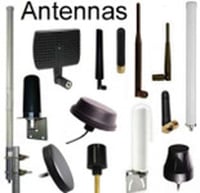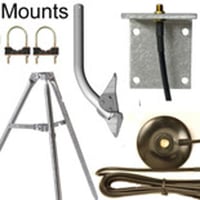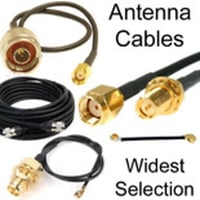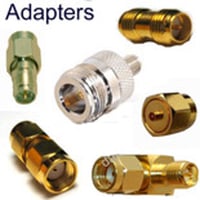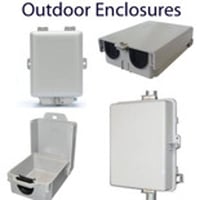5.8GHz BandPass Filter 5800MHz WiFi SMA connector options
- SKU:
- BandPass5800MF
- Availability:
- In stock
- Weight:
- 0.20 LBS
Data Alliance
Bandpass filter for the 5.8 GHz frequency band
- We have two options of SMA connectors:
- With SMA-male and SMA-female connectors
- Or with SMA female connectors on both ends.
- If you need RP-SMA connectors, we can customize for large orders.
- Suitable for 5800MHz Wi-Fi, and any other applications in the 5800 MHz frequency band
- Allows signals wtih the specific 5800 MHz frequency band range to pass through while attenuating or rejecting signals outside this range. Mitigates interference and enhance overall system performance.
A bandpass filter for the 5800 MHz band enhances signal strength by focusing the energy within the desired frequency range and improves throughput by reducing noise and interference, leading to a better overall communication experience.
Applications & Key Benefits in 5800 MHz Wi-Fi
1. Improved Signal Quality:
- Noise Reduction: By filtering out frequencies outside the 5800 MHz band, a bandpass filter reduces interference from other signals that might otherwise cause noise. This results in a cleaner signal within the desired frequency band, which directly improves signal quality.
- Reduced Intermodulation Distortion: Filters help minimize intermodulation distortion, which occurs when strong out-of-band signals mix with the desired signal, causing distortion within the band. This preservation of signal integrity helps maintain high signal quality.
2. Enhanced Signal Strength:
- Elimination of Unwanted Signals: By blocking unwanted frequencies, the filter prevents these signals from consuming the power of the receiver or transmitter, ensuring that the energy is focused on the desired frequency range. This can result in a stronger, more stable signal at 5800 MHz.
- Optimized Receiver Sensitivity: A bandpass filter can help improve the sensitivity of the receiver by eliminating out-of-band noise, which can otherwise degrade the performance of the receiver.
3. Improved Throughput:
- Better Signal-to-Noise Ratio (SNR): With a clearer signal and reduced noise, the signal-to-noise ratio improves, which directly affects throughput. Higher SNR means that the system can maintain higher data rates and more reliable communication, leading to improved throughput.
- Minimized Retransmissions: A cleaner signal with fewer errors reduces the need for retransmissions, which can clog the communication channel and reduce effective throughput. By filtering out interference, the likelihood of errors is reduced, leading to more efficient data transmission.
4. Compliance with Regulations:
- Regulatory Compliance: Many regions have specific regulations about the frequencies that can be used for communication. A bandpass filter ensures that the device only transmits within the allowed frequency band, preventing issues related to regulatory compliance and potential penalties.
A bandpass filter designed for 5800 MHz is typically used in radio frequency (RF) and wireless communication systems: Mainly WiFi and related applications for IoT operating in the 5.8 GHz band. As the IoT landscape continues to expand, the importance of these filters in achieving reliable and long-range wireless communication cannot be overstated. Engineers and developers in the field of IoT and wireless communication should consider bandpass filters as essential tools in their arsenal for achieving optimal performance in the 2400 MHz spectrum.
:

